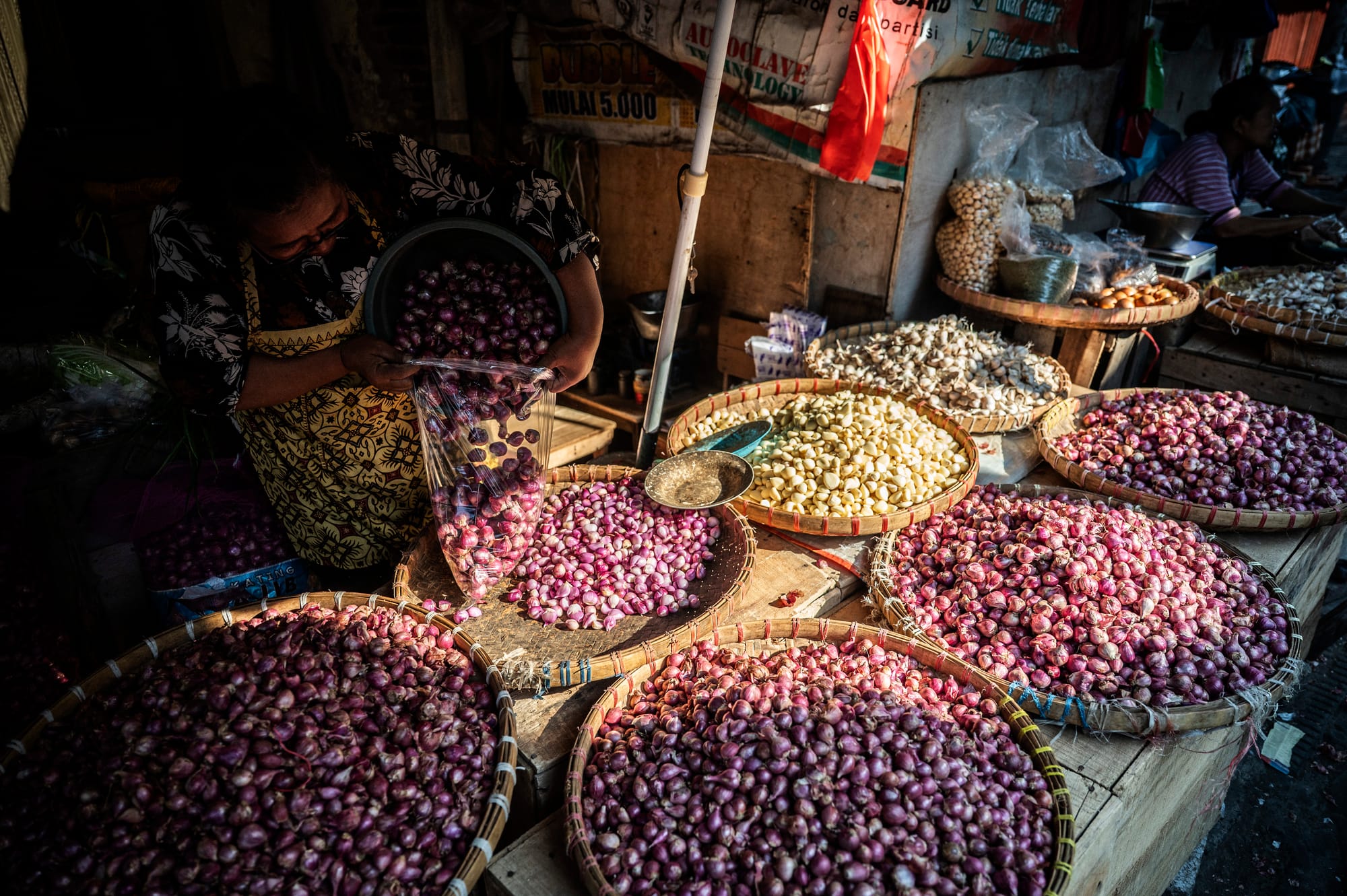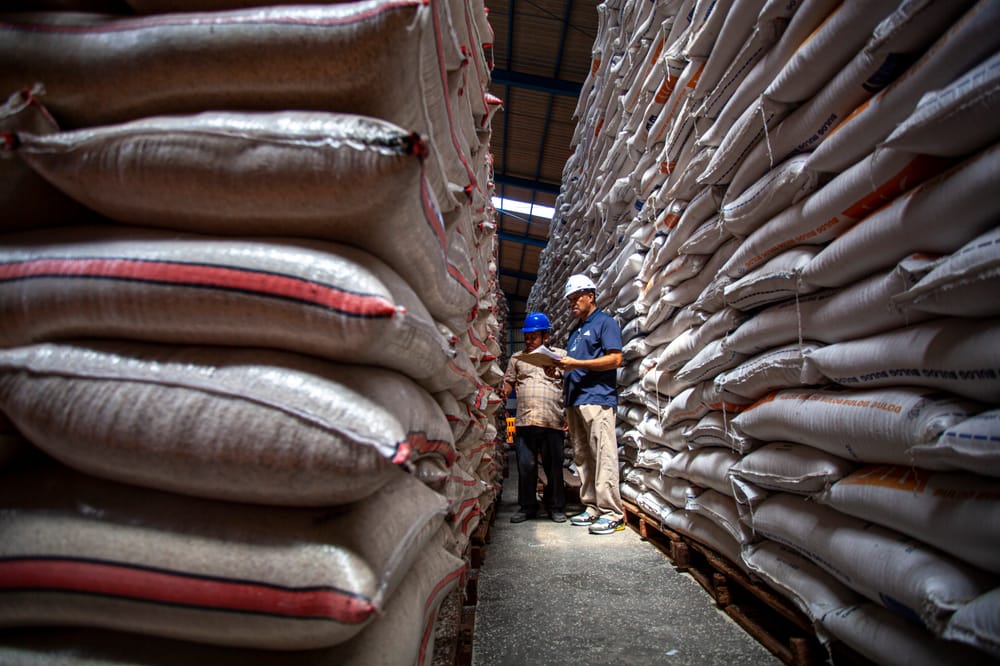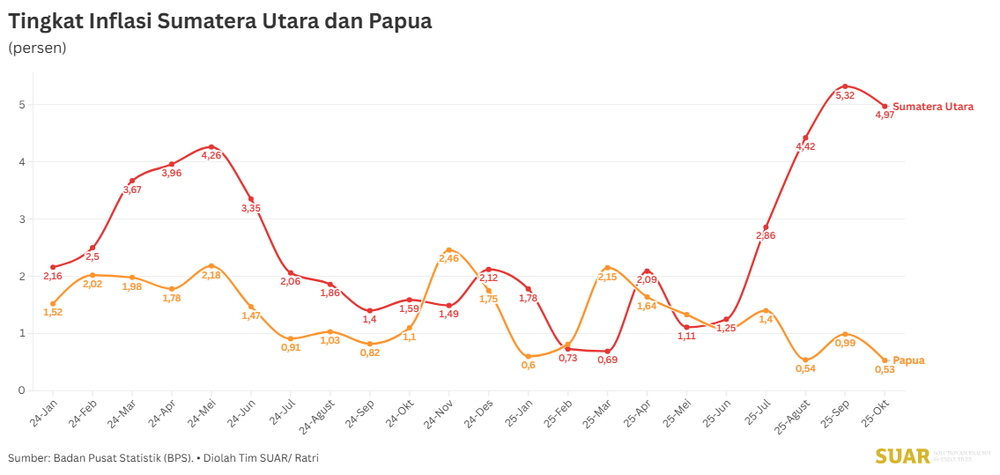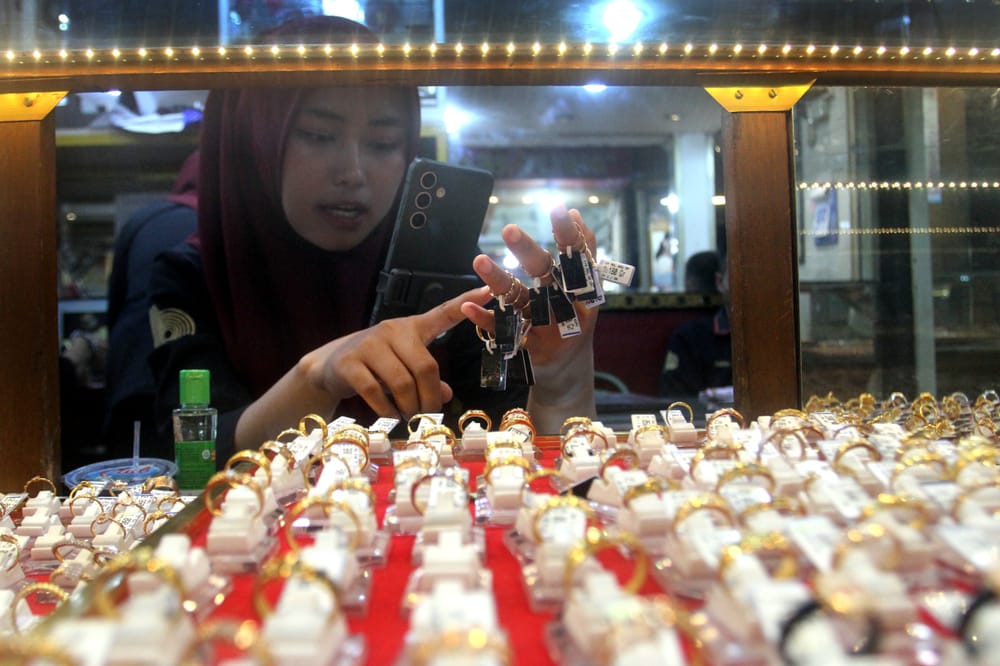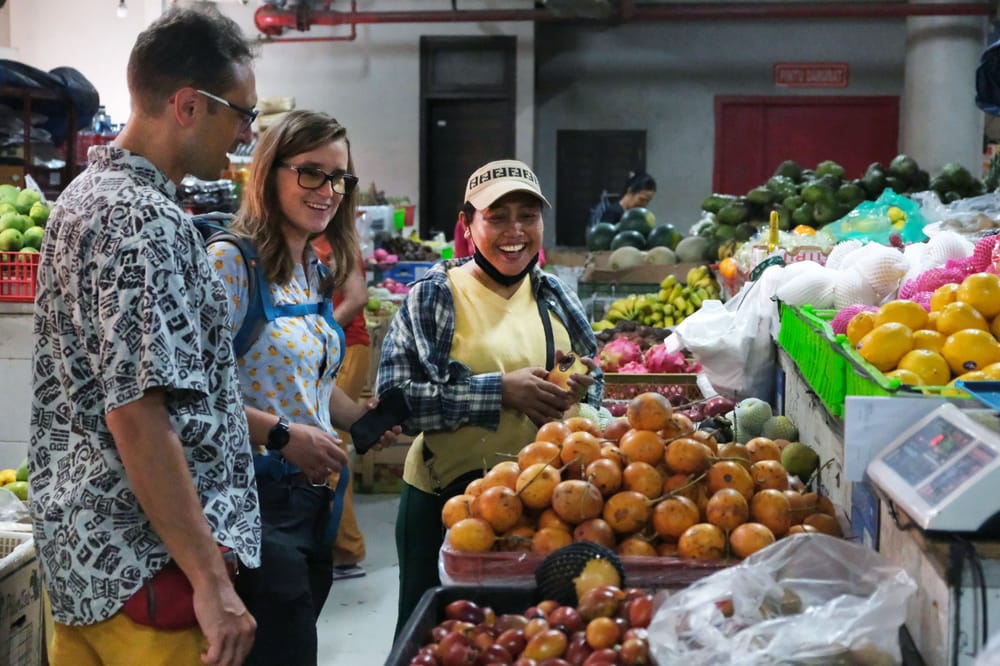The Central Statistics Agency (BPS) reported an inflation rate of 2.37% year-on-year in July 2025. This inflation rate is still within the target range for inflation control this year set by the government and Bank Indonesia (BI), which is 1.5%–3.5%.
According to BPS data, the main commodities contributing to the annual inflation in July were jewelry at 0.46%; shallots at 0.18%; tomatoes at 0.16%; rice at 0.15%; and water tariffs from the Water Supply Company (PAM).
Deputy for Distribution and Services Statistics at BPS, Pudji Ismartini, explained in a press conference on Friday (1/8/2025) that the annual inflation occurred due to price increases indicated by the rise in most expenditure group indices.
- The food, beverage, and tobacco group at 3.75 percent;
- The clothing and footwear group at 1.00 percent;
- The housing, water, electricity, and household fuel group at 1.65 percent;
- The household equipment, tools, and routine maintenance group at 0.52 percent;
- The health group at 1.94 percent;
- The transportation group at 0.12 percent;
- The recreation, sports, and culture group at 1.05 percent;
- The education group at 1.95 percent;
- The food and beverage/restaurant service group at 1.86 percent;
- The personal care and other services group at 9.00 percent.
Meanwhile, the expenditure group that experienced a decrease in index was: the information, communication, and financial services group at 0.31 percent.
From the distribution of locations, the highest inflation rate in July 2025 was recorded in South Papua Province at 5.45%. Meanwhile, the regency with the highest inflation in July 2025 was Toli-Toli Regency.
Meanwhile, the lowest inflation was recorded in West Papua Province at 0.43%. The regency with the lowest inflation was Karimun Regency at 0.40%.
Based on its constituent groups, the core inflation position in July 2025 was at 2.32% year-on-year. Meanwhile, the inflation rate in July 2025 for the volatile foods group reached 3.82% year-on-year. Meanwhile, the inflation rate in July 2025 from the administered price group reached 1.34% year-on-year.
Executive Director of the Bank Indonesia (BI) Communication Department, Ramdan Denny Prakoso, said that this maintained inflation rate is the result of consistent monetary policy and the close synergy in inflation control between Bank Indonesia and the Government (Central and Regional) in the Central and Regional Inflation Control Teams (TPIP and TPID) through the National Food Inflation Control Movement (GNPIP) in various regions.
"Going forward, Bank Indonesia believes that inflation will remain under control within the target range of 2.5% ± 1% in 2025 and 2026," he said on Friday.
Explanation of the inflation increase
Chief Economist of Bank Permata, Josua Pardede, explained the reasons behind the increase in commodity prices in July 2025.
"The surge in the food group was caused by disruptions in the supply of staple foods – such as rice, shallots, tomatoes, chilies, and fresh fish – due to crop failures triggered by the wet dry season. In addition, the prices of cooking oil and ground coffee also experienced a significant increase, reflecting higher production and distribution factors," Josua told SUAR (2/8/2025).

In addition, the personal care and other services group experienced a sharp increase due to the increase in the price of gold jewelry. Josua explained that the increase in the price of gold is closely related to demand as a safe haven asset and fluctuations in global gold prices.
Looking at this condition, he predicts that inflation until the end of 2025 will remain within Bank Indonesia's target range of 2.0% to 2.5%. However, he also warned that price increases concentrated in the food sector could put pressure on people's purchasing power, especially those in the middle to lower income groups.
To maintain price stability and boost purchasing power, Josua proposed several strategic steps. He said, "The government needs to increase the effectiveness of managing strategic food reserves through timely market interventions, such as market operations and direct assistance to vulnerable communities, especially for volatile commodities such as rice, chilies, and shallots."
Furthermore, he also noted that business actors can actively strengthen supply and distribution chains. He proposed technological innovations, such as the adoption of digital platforms, to improve logistics efficiency so as to reduce costs and stabilize prices in the market.
Retailer strategies
The increase in the price of goods, which reflects pressure on purchasing power, was also responded to by business actors in order to adapt to the current economic conditions. The Chairman of the Indonesian Retailers Association (Aprindo), Solihin, observed a shift in consumer behavior after major shopping periods such as Christmas and New Year (Nataru) and Eid al-Fitr.
According to him, we are currently entering the new school year period, so consumers are prioritizing spending on urgent needs, such as basic necessities and school fees, which has resulted in a decrease in purchasing power in other sectors.
To face these challenges, retail business actors must adapt to changes in consumer buying patterns, which are now more oriented towards low prices.
"Producers and us as retailers must be responsive in preparing products that consumers are looking for. What are consumers looking for? Products that meet their needs but at the cheapest price, among other things. So, we don't maintain one product that may be a market leader, but the price is quite high," he told SUAR (2/8/2025).

Not only the issue of price, the shift in sales mechanisms from offline to online or omnichannel is also a concern for business actors. Solihin explained that there has been an increase in online sales of products in the fast-moving consumer goods category, such as packaged foods, beverages, personal care products, and household products. However, for online sales of fast-moving consumer goods (FMCG) products, the increase does not exceed that of other product categories, especially fashion.
Despite facing difficult conditions, Solihin remains optimistic. "At least we as business actors must be prepared with a sense of optimism that there will be improvements in the level of the community's economy in particular, so that purchasing power can increase, even though we know it is very difficult in these times," he said.


